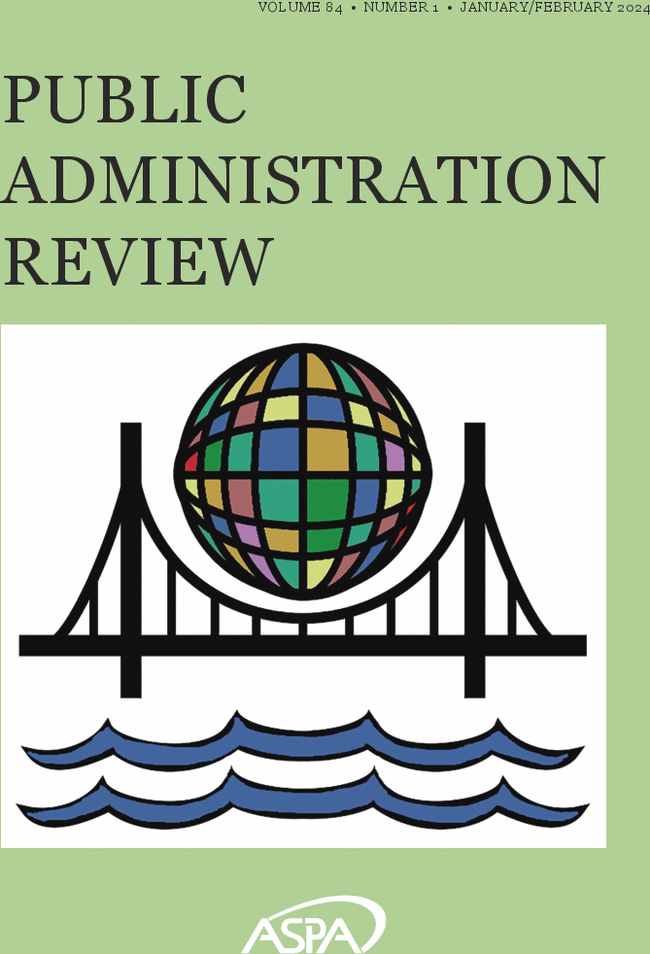从公民技术到以问题为中心的政府数据开放方法:环境正义仪表板的实施
IF 4.9
1区 管理学
Q1 PUBLIC ADMINISTRATION
引用次数: 0
摘要
本研究探讨了影响美国各州环境正义(EJ)开放政府数据(OGD)仪表板实施的开放配置和政策条件。EJ仪表板代表了从公民技术方法到OGD的转变,OGD强调公开发布大量数据,到以问题为中心的方法,政府机构发布和策划选定的数据,以解决政策特定问题。由于它们的差异,以问题为中心的OGD计划需要不同的组织结构和流程来促进数据发布(开放条件)和兴趣问题的表示(政策条件)。使用模糊集定性比较分析,本研究表明,EJ - OGD仪表板的实施响应于供需模型或政府驱动模型。缺乏执行源于解决问题的低制度化或对EJ问题的自满。总体而言,EJ - OGD的实施由一个可操作的问题定义和/或一个专门的管理结构来支持,该结构领导并通知特定于政策的数据提供。本文章由计算机程序翻译,如有差异,请以英文原文为准。
From a Civic‐Tech to a Problem‐Centered Approach to Open Government Data: Implementation of Environmental Justice Dashboards
This research investigates the configurations of openness and policy conditions influencing the implementation of environmental justice (EJ) open government data (OGD) dashboards across U.S. states. EJ dashboards represent a shift from a civic‐tech approach to OGD, which emphasizes the public release of vast amounts of data, to a problem‐centered approach where government agencies release and curate selected data to address a policy‐specific issue. Because of their differences, problem‐centered OGD initiatives require distinct organizational structures and processes to facilitate both data release (openness conditions) and the representation of the problem of interest (policy conditions). Using fuzzy‐set qualitative comparative analysis, this research shows that the implementation of EJ‐OGD dashboards responds to either a supply–demand model or a government‐driven model. Lack of implementation results from low institutionalization of problem solving or complacency toward EJ issues. Overall, EJ‐OGD implementation is supported by an operationalizable problem definition and/or a dedicated administrative structure leading and informing policy‐specific data provision.
求助全文
通过发布文献求助,成功后即可免费获取论文全文。
去求助
来源期刊

Public Administration Review
PUBLIC ADMINISTRATION-
CiteScore
15.10
自引率
10.80%
发文量
130
期刊介绍:
Public Administration Review (PAR), a bi-monthly professional journal, has held its position as the premier outlet for public administration research, theory, and practice for 75 years. Published for the American Society for Public Administration,TM/SM, it uniquely serves both academics and practitioners in the public sector. PAR features articles that identify and analyze current trends, offer a factual basis for decision-making, stimulate discussion, and present leading literature in an easily accessible format. Covering a diverse range of topics and featuring expert book reviews, PAR is both exciting to read and an indispensable resource in the field.
 求助内容:
求助内容: 应助结果提醒方式:
应助结果提醒方式:


